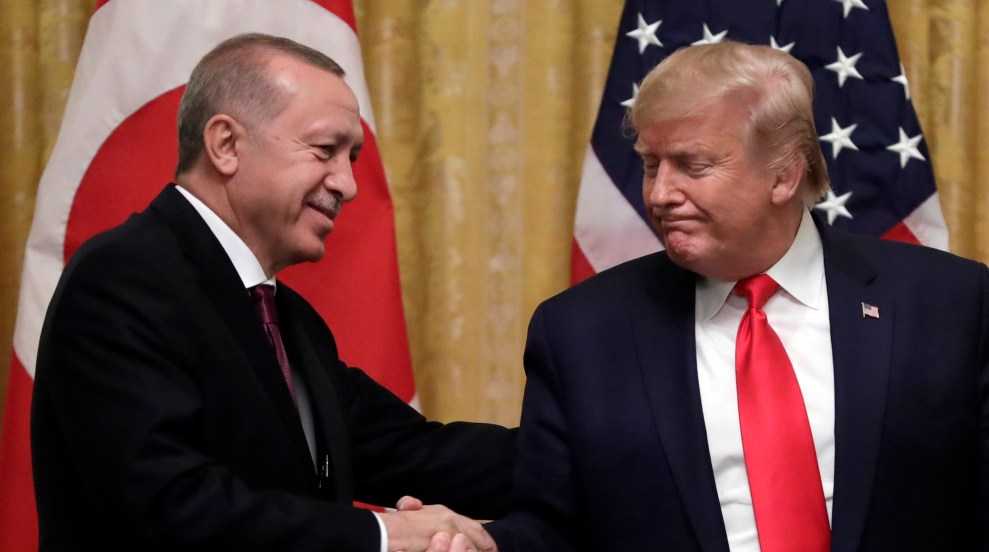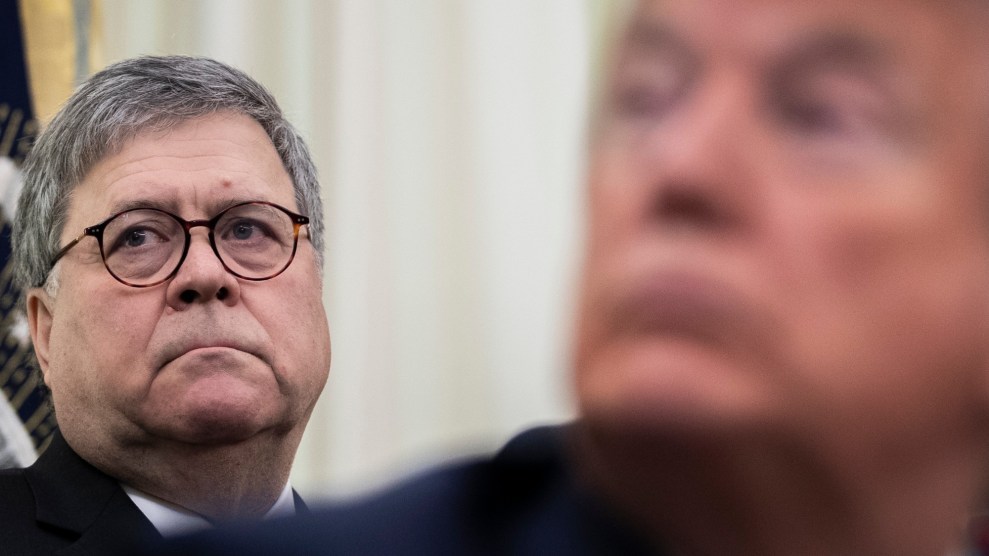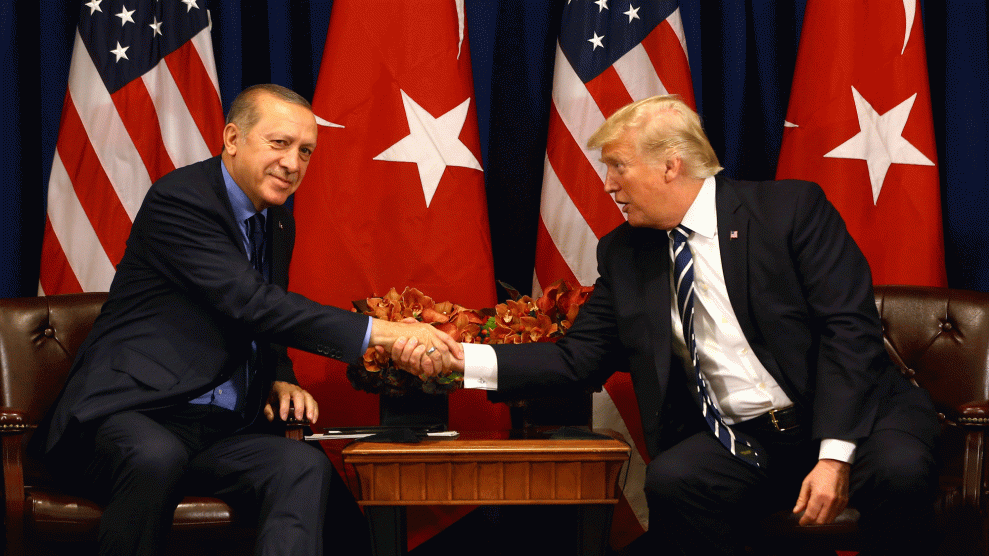
Former president Donald Trump meets with Turksih president Recep Tayyip Erdogan in Nov. 2019.Evan Vucci/AP
Turkish president Recep Tayyip Erdogan won reelection on Sunday, cementing his grip on power. First elected in 2003 as prime minister, Erdogan has reshaped Turkey from its secular moderate democratic system to a more religious and increasingly authoritarian power structure. Erdogan’s rule has complicated Turkey’s relationships with Western leaders—he is currently impeding Sweden’s entrance into NATO—but did find an eager ally in Donald Trump.
The former president took to Truth Social on Sunday afternoon to effusively praise the election outcome: “Congratulations to President Recep Tayyip Erdogan on his big and well deserved victory in Turkey. I know him well, he is a friend, and have learned firsthand how much he loves his Country and the great people of Turkey, which he has lifted to a new level of prominence and respect!” Trump posted.
Despite Trump’s assessment of Erdogan, most international relations experts and human rights observers take a more mixed view. As Turkey’s leader, Erdogan abolished the country’s longstanding parliamentary system, took control of state media and has relentlessly pursued his political opponents; in 2019, for example, an opposition politician won Istanbul’s mayorship and quickly found himself prosecuted for “insulting public officials.” (He now faces two years in prison, if convicted.) Erdogan’s administration has been ruthlessly efficient in cracking down on LGBTQ community—”We are against LGBT,” Erdogan announced at a campaign rally recently—and he has complained about gender equality, saying women are not equal to men. His administration largely fumbled the response to devastating earthquakes in February that killed more than 50,000 people.
As Trump is well-known for his affection for strongman leaders around the world, his affection for Erdogan is not surprising. But with Turkey, his personal history runs especially deep. With his eye on the White House back in 2015, he addressed criticisms about potential conflict of interest:
“I have a little conflict of interest ’cause I have a major, major building in Istanbul. It’s a tremendously successful job. It’s called Trump Towers—two towers, instead of one, not the usual one, it’s two,” Trump said in an interview with Steve Bannon in 2015. Trump’s Istanbul property—which he does not own but earns royalties from the naming deal—has earned him at least $13 million over the years, including $1 million while he was in office.
The financial relationship and potential leverage have not been lost on Erdogan, who openly mused about snatching the Trump name off the two buildings in 2016 when Trump disparaged Muslims during his first run for office.
The pair have had their differences—Erdogan summarily rejected Trump’s efforts to pressure Turkey on changing course in Syria—but problems have mostly been papered over by Trump’s willingness to bend to Erdogan. This included taking to a podium to praise Erdogan mere hours after the Turkish president was caught on film appearing to direct his bodyguards to attack protesters in downtown Washington, D.C. outside the Turkish ambassador’s residence.


















